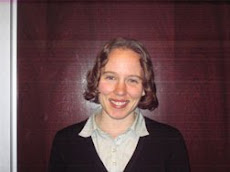
Before beginning our interview, Allan Richardson, the Scottish CEO of Wataniya’s operation in the Palestinian Territories, showed me the view from his office window.
“You see these houses?” he said, pointing to a new Palestinian housing community. “They weren’t here two years ago. There was nothing here, just a field. They’ve been here a year now. They funded them, built them—it’s all Palestinian money.”
He then brought me to an adjacent room, where we looked out another window. “That’s the settlement,” Richardson said, “That’s how close they are. And you see these towers there? That is a Jawwal, CellCom and Orange [tower]. Cellcom is now selling 3G packages into Palestine from there and from all around the West Bank. So if you’re going to ask about competition with Israelis, there is competition. It’s not big, and the Israelis will deny it. But the fact of the matter is that’s a 3G tower there.”
Opposite the window in this same room was a large paper map that’s taped onto the wall. Richardson pointed to the dozens of marks where Wataniya’s towers are being built or will one day be built, and how Area C, which is reserved for Israeli settlements and military posts, crisscrosses the entire West Bank.
“We have an operation in the Maldives and the guy who runs it… talks about the archipelago of the Maldives and I talk about the archipelago of Palestine,” Richardson said. “I said ‘you’ve got water between yours and I don’t—I’ve got Area C.’ He’s got sea. I’ve got Area C!”
After the tour, we sat down in Richardson’s neat, polished office and talked for about 40 minutes. Richardson peppered the conversation with colorful jokes and analogies, but he repeatedly returned to the serious point: His company was losing millions every month because the spectrum agreement had not been carried out as planned.
Richardson, who started mobile networks in post-war Iraq and Afghanistan, said the obstacles Wataniya faced in those countries were “nothing like” those confronted in the Palestinian Territories. “Everybody makes lots of promises. But I’m still sitting here with no [frequency] spectrum and not all my equipment,” he said. “From my perspective, it’s a very simple thing. We didn’t get it. We were promised, and [the Israelis] didn’t deliver.”
In addition to the undelivered frequency spectrum, Richardson reported that some of Wataniya’s essential equipment has been awaiting inspection at Israel’s Ben Gurion Airport for more than five months. Israeli officials, he said, promised him the equipment would be released by the end of May. However, I contacted Richardson’s press secretary in early June, and the equipment was still stuck in customs.
At the conclusion of the interview, I asked Richardson if he believed that Wataniya would launch soon. “I’ve got to be optimistic,” he replied. “I know it’s being dealt with at the highest levels. And it’s viewed as a bellwether of what can be accomplished with this size of investment in Palestine.”

%5B1%5D.jpg)
No comments:
Post a Comment